2. The Railways
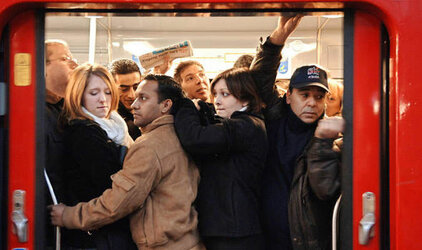
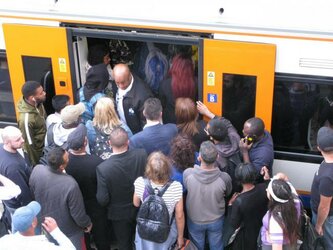
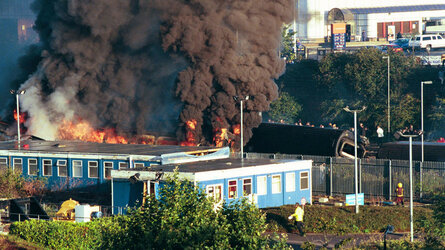
Britain's railways are one of our national obsessions and are one of the most heavily politicised industries in the country. Britain's railway network is very much like Britain's weather:
1 - Something the British talk and complain about constantly.
2 - Something foreigners don't understand our obsession with until they spend some time here, and then within weeks of arriving they are obsessed with it too.*
3 - Something that is fucking terrible.
* At university I was good friends with a guy from Uzbekistan. He said to me (read in your best Borat voice):
"Spunt, I very much like your country. Your countryside is beautiful, your people are welcoming, so many opportunities. Electricity is on all day and you not have crazy dictator. But what the fuck is going on with your weather? Yesterday, it was hot. I get sweaty just walking around. So I think "ah, in September is warm season. OK." So I come campus today with shorts and sunglasses. Now it is fucking snowing. How do you people cope?**"
** We don't.
Being a fairly flat, densely populated country with big cities close to each other and with sprawling suburbs, you'd think the UK would be ideal for railway transport. And you'd be right. Unfortunately, the UK was so suitable for railways that we built them first and had nobody else's mistakes to learn from. So most of our network was built by the Victorians. When faced with questions such as "how big should the trains be?" or "how sharp should the curves be?" or "how far apart should the rails be?*" our top-hatted, cigar-chomping ancestors just said "I dunno lol" and got pretty much everything wrong.
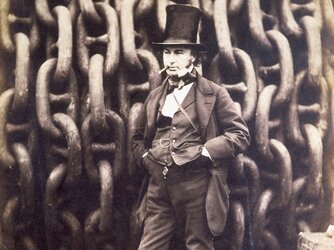 You think rappers these days dress baller and have big chains, that ain't SHIT
You think rappers these days dress baller and have big chains, that ain't SHIT
The curves on the tracks are too sharp to run fast trains, because the curvature and speed limits were set at a time when it was widely believed that travel above 30mph would cause passengers to suffocate to death (people still do suffocate on our trains, but only because they've had their face pressed into the armpit of a sweaty sewage worker for 2 hours on the 18:32 from St. Pancras). We can't run double-decker trains unlike everywhere else because our bridges and tunnels are too low. The stations are too small, there aren't enough tracks on the main lines, and we can't fix any of these things because our land prices (given our overcrowding) are ludicrously high, meaning any cost-benefit analysis of upgrading the network basically comes back as "lol you're fucked, enjoy your broken sardine-tin trains, I used my consultancy fee to buy a Mercedes."
*The Victorians settled on the seemingly inexplicable 4 feet 8.5 inches as the distance between the rails, because it was the same axle length that horse-drawn rail coal carts used. And the reason the carts were built that way was because that's how far apart the ruts on dirt tracks were, and they were that far apart because that's how far apart the Romans put the wheels on their carts. That railway gauge has been adopted all over the world (including the USA) so a major part of the world's railway engineering was designed by people who thought crocodile dung cured syphilis.
That's not to say that we haven't learned from other countries. From the French we learned that the railways should be on strike all the time. From the Japanese we learned that you can cram even more people into a carriage if you hire someone to violently squash them in. And from the Americans we learned to paint trains red, white and blue and crash them into each other at high speed.
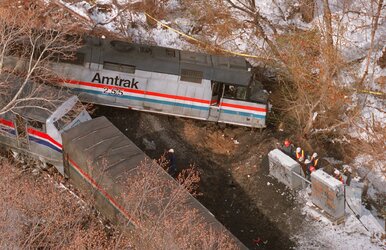
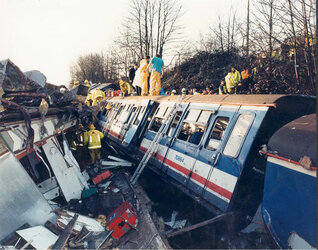 "We're not so different, you and I"
The history of Britain's railways
"We're not so different, you and I"
The history of Britain's railways
But we're getting ahead of ourselves a bit. Our railways used to be the best in the world. Now they are a national embarrassment. Why is that? That's a question with a really long answer. But first, it must be pointed out that the shitness of our railways is relative. Our railways are probably the worst in Western Europe and so primitive compared to what the Japanese have that their tourists probably don't even recognise them as trains and wonder why the British like to cram themselves into largely stationary metal boxes for three hours each weekday. But holy shit our railways are better than American railways, at least for passengers. Compared to our long-distance trains, travelling on Amtrak is something akin to playing Oregon Trail, except with many more diseases to catch and longer journey times. And from what I've seen of American commuter rail, you guys really haven't figured out the "go from somewhere people live to somewhere people work" thing and build your stations in the most dangerous, run-down parts of town, the trains themselves only run once a fortnight and their occupants are 80% murderers, rapists and crazy homeless people who will somehow sit next to you wherever you try to hide and masturbate while trying to convert you to their schizophrenic religion. Basically, if you want to know what a British bus journey is like, take an American train.
Almost all our railway network was built in the 19th century by Victorian entrepreneurs, back when that sort of thing was still allowed. Back then, the only competition the railways had were horse-drawn canal boats and stagecoaches, and the railways were so much better that they took over the country's entire transport infrastructure by 1900. Every village, every factory, even things like schools, hospitals and aristocratic estates had their own stations, even their own internal railway networks. Everyone, wherever they lived, could run a train on your mom (these days they have to run a Rail Replacement Bus on your mom).
But then came World War 2. The Nazis destroyed Britain's railways the way Nazis destroy everything - by saying that there are only two genders, making dank memes and pointing out plot holes in Star Wars films. No wait, that's how Nazis ruin things now, apparently. Back then Nazis had to make do with things like sending thousands of bombers and ballistic missiles to rain high-explosives on them, a method much more crude than giving Depression Quest a 4/10, but nonetheless effective. Plus, most of the people who would normally have staffed them were dead or missing important limbs. The only people in the country with any money were the government, due to Marshall Aid. With the Labour party in power, the solution reached was of course nationalisation, and the staffing issue was addressed was mass-immigration from former colonies. Good thing none of those policies ever caused any problems later on or anything.
The result of this was the national embarrassment that was British Rail. Hack American comedians in the 1980s had airline peanuts and Yugos, their Anglo equivalents had British Rail. How easy was it to laugh at British Rail? Look who they chose as their spokesmen:
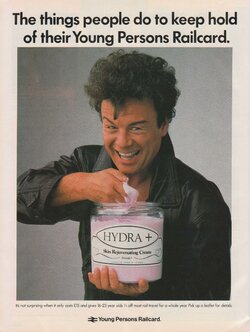
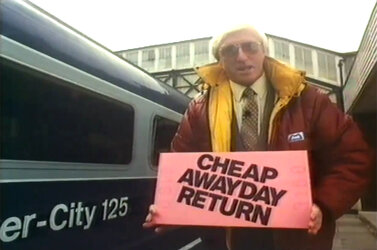
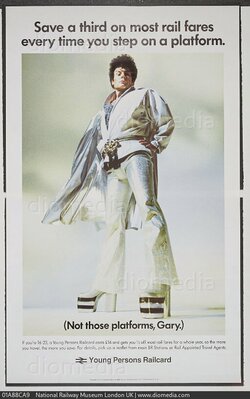

Having the government in charge of the railways resulted in no long-term strategy, as what the railways were for changed with each election cycle. Were they a public service, subsidising commuting to boost the economy? Were they there to make money? Should they be expanded? Contracted? Who the fuck knows, and the answer would change constantly. The only things that were consistent were the government's determination not to spend any money on them and British Rail's terrible safety record.
As mentioned in my last post, in 1960 Ernest Marples, then Minister of Transport, appointed Richard Beeching, the former chairman of nationalised chemical company ICI, as head of the Railways Board, charged with deciding what to do with the railways, which reached every tiny village in the country despite the automobile taking over almost all short-distance journeys, resulting in low usage and huge losses. Beeching's solution was simple - close them. Almost all of them. Beeching reasoned that people in small villages would drive or use buses (which the government would provide) to drive to big cities and catch the train to their destination. He was shocked, *shocked* I say, when it turned out people would just drive the entire way on the massive new motorway network that his boss made so much money building. The solution to this "problem" was just to abolish the buses, meaning that anyone without a car couldn't get a train at all. Fuck 'em, they probably voted Labour anyway, the filthy proles.
As a result of all this "modernisation", the railways still lost money hand-over-fist, and were dirty, unreliable and unsafe. Almost from the get-go, there was pressure on government, especially Conservative governments, to re-privatise them. But the arch-privatiser, Margaret Thatcher, resisted. Because she had actually read von Mises and Hayek, she recognised that the shrunken railway system had no way to reinstate competition and privatising it would hand a strategic yet loss-making piece of infrastructure to a massive private monopoly who would have to either cut costs even more than the government had or be subsidised just as much, if not more than, British Rail, but without any accountability. Thatcher's successor, John Major, when faced with the same pressure, caved immediately, because he had the backbone of a pool noodle and the analytical ability of a traffic cone*. The resulting re-privatisation was one of the biggest disasters in British political history. It was said to be so complex that no one person ever understood it all, but there were an awful lot of "consultants" who claimed that they did, and pocketed vast amounts of money in the process.
* John Major had a thing about traffic cones. When he was Prime Minister, rather than deal with
the catastrophic economic disaster he personally caused, he instead prioritised the setting up of a national "
Cones Hotline" for people to call if roads were coned off without any work being done. When a journalist called this line to report such a thing, he was told the cones were "probably because of road works".
The government, urged on by a small army of consultants, created a monstrosity of an entity called RailTrack - a gigantic private monopoly with the only loicence to own and repair track. So the new train companies didn't own the tracks they ran the trains on (no other railway in the world has ever worked like this), and whenever engineering works over-ran or whenever faulty maintenance caused
massive trainwrecks*, about ten different public and private bodies would try to blame (and sue) each other. All these costs were paid for by the Catholic Church as penance for raping so many children. Nah, just kidding, they were paid for by passengers and taxpayers, of course! So many fatal and high-profile accidents took place on RailTrack's watch that Blair's Labour government nationalised it, paying its shareholders pennies in the pound on the value of their shares. When it was pointed out that this was illegal, Blair just changed the law to retrospectively make it legal (this was the kind of thing Blair did all the time, enabled by our lack of any written constitution to stop him).
* It's telling that when I went to Wikipedia to get that link I had to specify which "Potters Bar Rail Disaster" I was referring to, as apparently there have been FOUR. It's not even a very big town.
Despite the system being privatised, and operated by private companies, the fares, ticketing system and timetables are set by government. The train firms also have to ask the government permission to buy new trains, and of course with RailTrack nationalised as Network Rail, the government decided on where and when track maintenance and upgrades would take place. So Britain's railways are in fact essentially state-run but subcontracted. So how do train companies turn a profit, given that they can't set their prices, timetables or what trains run on the tracks they don't own? They get government subsidies and cut costs, of course, and under-staffing is a major reason why Britain's railways are so unreliable. The privatised system now requires even higher government subsidies than British Rail ever did despite soaring ticket prices. Thatcher, as so often, had been proven right.
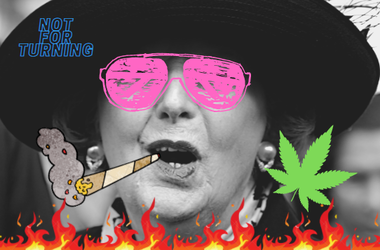
Deal with it.
How good is the government at administrating all this complexity? Well in 2012 it had to row-back on awarding a £5bn ($6.5bn) franchise for one of the country's biggest lines and halt work on three more tendering processes because
some spotty bureaucrat at the Department for Transport had used the wrong formula to calculate inflation in the Excel spreadsheet the government used to compare the bids. The resulting £50m ($65m) costs of this cock-up were of course paid for by the responsible apparatchiks and politicians out of their own pockets haha fooled you again of course they weren't they were paid for by the taxpayer and nobody was even fired.
The Potters Bar crash linked above was just one of a number of high-profile accidents that happened in the first few years after privatisation, and of course the Left and their buddies at the BBC and the Trade Unions decided that this was privatisation's fault despite the following facts:
1 - British Rail's safety record was worse by almost all metrics
2 - All these accidents involved ex-British Rail trains, ex-British Rail staff, and ex-British Rail tracks and signals.
3 - After RailTrack was nationalised the accidents continued.
4 - The whole thing is state-run and largely state-owned these days anyway.
But The Narrative was set, and even today everyone thinks that privatisation = mangled wreckage and there is a sizeable movement to "Bring Back British Rail". Very few of its members are old enough to remember what British Rail was like (a trend amongst the pro-nationalisation Left), so here's some reminders to you young'uns:
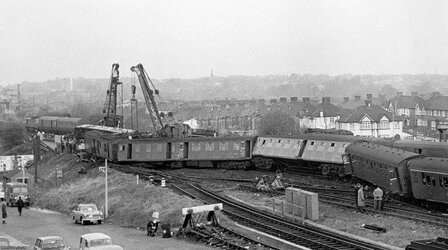
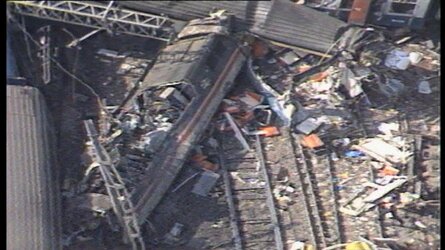
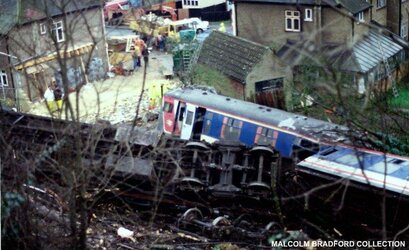
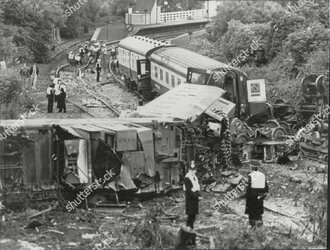
Mmmm, nostalgic.
The London Underground
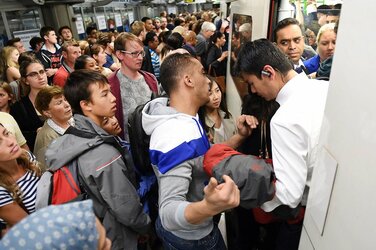
You can't do a post on Britain's Railways without doing something about probably the worst railway network in the country: The London Underground. The Underground, or the "Tube" as everyone calls it, has 11 lines, 272 stations and nearly 600 trains, and every one of those things smells of piss.
Like so much about Britain, and just like the other railways, the Underground suffers from "Britain did it first syndrome." The tunnels are fucking tiny because the Victorians couldn't drill bigger ones at the time, the stations are too small and overcrowded and, unlike most other underground railways, they only have 1 pair of tracks per line instead of two. This means that entire routes must be shut for maintenance and overnight "fluffing*" means that it can't run a 24 hour service, meaning London's luckless night shift workers have to take London's terrifying Night Bus service, taking hours to get home surrounded by vomiting, fighty drunks, stabby youths and the many homeless people who spend all night going round and round in them because a Night Bus ticket is cheaper than a homeless shelter.
*"Fluffer" on the Underground is an even more degrading job than the one you're thinking of. Dust and fluff, made up in large part from dead skin cells from the Tube's 1.8 million daily passengers, builds up in the tunnels and interferes with electrical contacts and signal relays. So a gang of people has to go down every single tunnel every single night with sacks and pick it up by hand. Then they take the Night Bus home. In the States, this is probably the kind of job they would force sex offenders to do. We sort of do the same, but we give these jobs to immigrants
before they get convicted of sex crimes, which saves time I suppose.
The Tube is one of the few parts of the UK that is still ruled by trade unions. The Tube's drivers can paralyse London by going on strike, and they do this constantly to extort more money and concessions from people who earn a fraction of their salary. Bear in mind that about half of the Tube's lines are automatic - the trains drive themselves, and all the "drivers" do is open and close the doors. So severe is London's Stockholm Syndrome that Tube drivers have some of the most excessive pay and conditions of any group of people in the country:
- £55,000 ($75,500) STARTING salary
- £36 ($49) per hour overtime
- The most experienced drivers earn over £100,000 ($137,000) per year
- Driver jobs are not advertised publicly and are restricted to existing employees
- New drivers must be approved by the Unions (prioritising family members of existing drivers)
- 36 hour working week
- 43 days annual paid leave
Not bad for pressing two fucking buttons, shows that extortion is a very effective tactic when it's legal.

Rez plz.
Compare that to, say a London bus driver, who gets paid just £12.65 ($17.37) an hour (no higher overtime rate), rising to a generous £13.81 ($18.96) after two years, equivalent to an annual wage of about £24,000 ($33,000) assuming a 36-hour week, (though most bus driver shifts are much longer), and only 28 days leave. For all that you have to fucking steer the thing in London's psychopathic traffic AND deal with the kind of people who take the bus, all day every day. A one-bedroom flat in the inner suburbs of London will cost you about £1000 per month in rent alone, for comparison.
The tube passenger's lot is a great deal worse than that of their drivers. The tube is dangerously overcrowded, roasting hot most of the year (the tunnels are too small to install air conditioning on most lines) and appallingly unreliable. These three factors can combine to highly hazardous effect, with technical problems forcing the pregnant and elderly to stand in shoulder-to-shoulder overcrowding for hours in 120 degree heat. Nobody has died yet, but there have been some very close calls. If you commute on the Tube, you can expect this to happen to you at least once a week.
The smell of the tube is unmistakeable and revolting, a mixture of lubricant oil, sweat, piss and fast food. The "Bakerloo Breeze", whereby oncoming trains push air onto the platform before arriving, ensures that everyone gets a really good dose of it. Every part of the tube is infested with rats, and some stations are so old that they only use ancient and horrifying lifts to get to and from the platforms. It has been estimated that the air on the Tube is so toxic that spending 30 minutes on it is the equivalent of smoking a cigarette in terms of reducing your health and life expectancy.
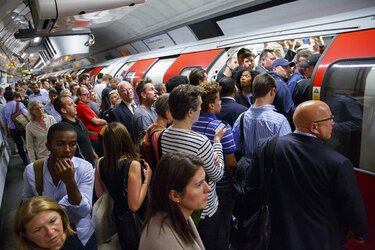
Hundreds of thousands of Londoners do this every day for decades. And you wonder why they stab each other so much?




















